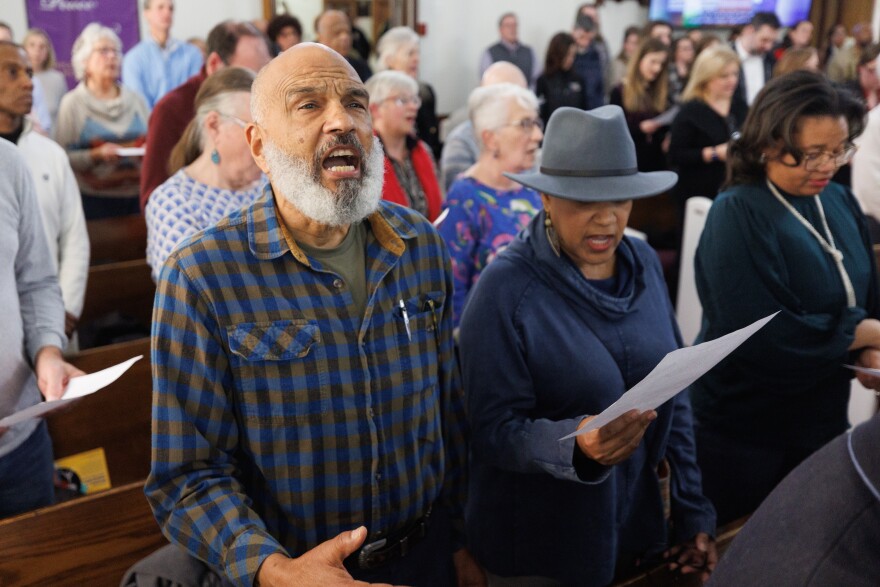Over 100 people gathered in Fredericksburg’s Shiloh Baptist Church (Old Site) last week to celebrate a new stop on the U.S. Civil Rights Trail.
The old church, which is marking its 170th anniversary this year, is the first stop on Fredericksburg’s Civil Rights Trail.
The local trail opened in February 2023 — and with last week’s announcement, it is now Virginia’s fourth stop on the U.S. Civil Rights Trail, joining the Danville Museum of Fine Arts and History, the Moton School in Farmville and the Virginia Civil Rights Memorial in Richmond.
Chris Williams, assistant director at the University of Mary Washington’s James Farmer Multicultural Center, and Victoria Matthews, tourism sales manager for the City of Fredericksburg, spearheaded the effort to establish a trail in the city.
Williams’ mother was a community organizer in Fredericksburg when he was growing up —Williams used her connections to organize interviews with 16 Black residents in the region who lived through desegregation. Those interviews shaped the trail’s narrative: “I just really wanted to tell the stories of the people I grew up with, because I had never seen them in, not in print, not on radio, [not] on TV.”
Historian Frank White was honored for his contributions to the project at last week’s ceremony. White grew up in Stafford County in the 1950s, but had to trek into the city to attend the nearest all-Black school.
“A lot of kids just quit because they couldn’t stand it. But my parents said, ‘You gonna get an education,’” White told VPM News.
The Fredericksburg trail takes visitors to sites that have seen the development of Black activism, politics, education and more from before the Civil War to today. It includes 18 stops, including six on UMW’s campus.
It starts at Shiloh Baptist Church (Old Site), which has served as a gathering place for Black politicians, educators, organizers and more for over a century.
The trail takes walkers to a pre–Civil War auction site, the sites of sit-in protests during the Civil Rights era, and streets where Black Lives Matter protesters marched in 2020.
It introduces participants to John Washington, an enslaved man who fled north from Fredericksburg to Union Army lines in 1862. He was one of the earliest in a wave of self-emancipation that saw more than 10,000 refugees flee from chattel slavery in nearby counties, accelerating the United States toward the Emancipation Proclamation in 1863.
The trail also tells the story of Robert Christian, the first Black student in Fredericksburg to attend the Maury School, a formerly all-white school, during desegregation. For decades, Christian was the anonymous subject of a photo taken on his first day at Maury in 1962 — Williams brought his name and his story into public view.
“When I came out of that school, I would run home and my house wasn't but maybe 50 yards away. I would be home in like 30 seconds. I would come home and tell my mother but she couldn't do nothing. Nobody could do nothing. She said, ‘This is what we got to tolerate until they get used to us.’ Those were the worst times of my life at this school. I never felt so alone,” Christian said in an interview with Williams.
Now, the stories told by White, Christian and 14 other African American elders are being nationally recognized.
“These are valuable contributions to American history and the people who lived through segregation and desegregation,” Williams said. “You can't tell those folks what they went through, because they will tell you in a heartbeat, ‘This is my truth and this is what I experienced.’”

Editor’s note: Christopher Williams is a member of VPM’s Community Advisory Board.













